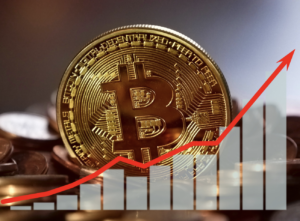Anúncios
Generation Z: The Absent Leaders—Now What?
In today’s fast-paced world, professionals are becoming increasingly hesitant to sacrifice their leisure time for work. This trend is especially prevalent among the current generation, known as Generation Z. The question that arises is: what can we do to prevent the “leadership gap” that is beginning to emerge in the workforce?
According to Visier, a human analysis and workforce planning software, 91% of independent workers do not aspire to become people managers due to stress, pressure, or job satisfaction issues. In August 2023, a survey was conducted with 1,000 full-time US workers to examine their career and people management goals.
Anúncios
One of the main reasons cited by workers for not wanting to take on leadership roles is the shift in today’s priorities. “The pandemic forced us to think differently, and today’s society’s ambitions have changed to reflect new job market trends,” explains executive coach Milena Brentan. The Visier research confirms this shift in priorities, with career-related goals ranking fourth among workers.
The surveyed employees listed the following as their main goals:
Anúncios
Being with family and friends: 67%
Physical/mental health: 64%
Travel: 58%
Received a raise: 54%
TIE: Hobby success: 29%
TIE: Flexible workplace: 29%
Promotion at work: 23%
Family-building: 22%
While professionals of all ages participated in the study, it is evident that Generation Z places a high value on work-life balance. “More than any other generation, Gen Z values meaningful experiences, flexibility, and a healthy workplace. Taking on leadership roles may involve a heavy workload and numerous responsibilities, which could be perceived as incompatible with their desire for quality of life,” says Luciana Carvalho, CEO of Chiefs.Group. However, she emphasizes that this does not mean that this generation is averse to work.
One of the primary challenges faced by Generation Z is a lack of confidence in their leadership abilities. The Visier study reveals that 55% of Generation Z respondents express a desire to become people managers within their organization, but their self-doubt may hinder them from pursuing such roles.
As the next generation enters the workforce, they are confronted with unique challenges. Generation X rejected the idea of working for the same employer until retirement, while Generation Y prioritizes meaning over money. Generation Z, on the other hand, entered the job market during the pandemic, where remote work and flexibility were highly valued.
Another study suggests that Generation Z is less inclined to pursue executive roles. YouGov Global Profiles found that 50.8% of Latin American Generation Z individuals would prioritize improving their jobs over having more free time. This sentiment is echoed by the majority of individuals in this age group, although Latino Baby Boomers have a slightly higher percentage at 54.9%.
The YouGov survey also highlights that Latin American Generation Z individuals are less committed to their jobs, with 51.5% expressing a desire not to work every day, compared to 38.9% of Baby Boomers. David Eastman, the general director of YouGov Latin America, points out that this lack of job dedication among Latin American Generation Z individuals may stem from their focus on their career trajectory.
Only 43.5% of 18–27-year-old Latinos report loving their jobs, marking the lowest percentage among all age groups. This figure is even lower than that of Baby Boomers, who have a job satisfaction rate of 71.6%. Overall, the Global Profiles respondents have a job satisfaction rate of 58.3%.
In conclusion, Generation Z’s shifting priorities and values require a reevaluation of traditional leadership roles in the workforce. As this generation navigates the challenges of the modern workplace, it is essential for organizations to adapt and find new ways to engage and motivate their employees. By addressing the needs and desires of Generation Z, businesses can bridge the leadership gap and cultivate the next generation of leaders.





